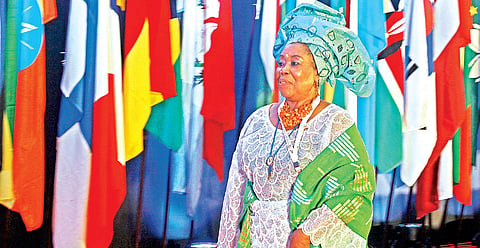Sanskrit Uniting Indians, says Katju
CHENNAI: Sounding a note of caution against powerful interests trying to divide the nation, Press Council of India chairman Markandey Katju on Wednesday said that while tolerance and respect were essential to maintain unity, one factor that united Indians was the spirit of the Sanskrit language.
Inaugurating the 71st Y’s Men International Convention here, the former Supreme Court judge said that India, like North America, was a country of immigrants. “Most of them, including Dravidians, came from the northwest and this led to tremendous diversity in religion, ethnic groups, religion, caste.
Native tribes like Todas and Santhals were the original inhabitors, who were pushed into jungles by our ancestors,” he pointed out. “Despite the diversity, a factor that unites is the spirit of the Sanskrit culture. There is something special about Sanskrit that unites us.”
India was passing through a transition period from an agricultural to industrialised society, he told the gathering, comprising representatives from around 70 nations. “In the next 20 years, it is going to be chaotic and turbulent conditions, when the old society is being replaced by a modern one,” he warned. “The only policy that can work is secularism and equal respect to all religions,” he said.
Drawing a parallel between India and China, he said while there was a broad homogeneity in the communist nation, India was a country of diversity. “In India, we have different scripts, as compared to China. It is absolutely essential to maintain unity. We must adopt tolerance and respect for each other. One that unites is the spirit of the Sanskrit language.”
The former judge rued that there was a misunderstanding that Sanskrit tried to dominate other regional languages such as Tamil and claimed it was a predominantly ‘atheistic,’ promoting free thinking. “People have a misunderstanding that it is the language of the Hindus, the chanting of mantras and so on. That is only five per cent of Sanskrit language. 95 percent of Sanskrit literature has nothing to do with religion,” he said.
Describing Sanskrit as “a language of free thinkers who thought on a wide spectrum of subjects,” he said it also promoted progress in science and technology. Undergoing changes with the passage of time, Panini had set rules making the language useful to promote scientific ideas.
Since India was a poor country, it was yet to get a permanent seat in the United Nations Security Council, he added.

